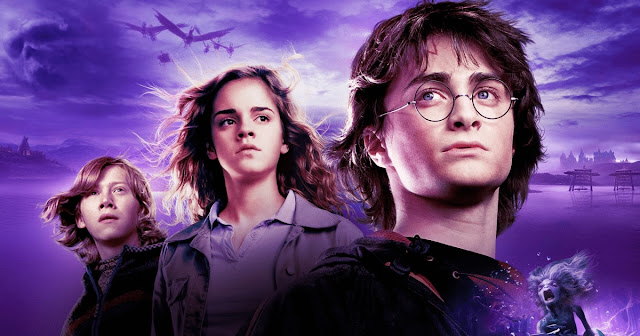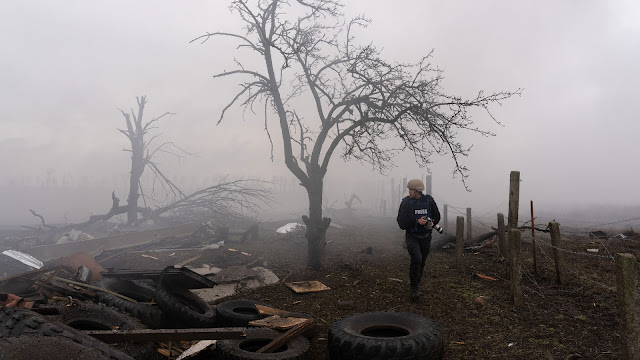I Love Harry Potter and the Goblet of Fire and You Can’t Stop Me
by Alyx Kruger
Goblet of Fire used to be my least favorite Harry Potter movie. Now I’m kind of obsessed with it. I didn’t like it growing up is because it’s a terrible adaptation of the book. I still maintain that it’s a terrible adaptation of the book. Granted, the book as written would be nearly impossible to adapt into a feature-length movie. There are so many extraneous side plots and thick descriptions that I can hardly blame the writers for abridging several B, C, and D plots or axing such iconic characters as Ludo Bagman and Winky, The House-Elf (you can’t make this shit up, folks). But as a die-hard eight year old Harry Potter fan such egregious deviations from the source material were utter blasphemy. This movie didn’t capture the plodding, intrigue-based plot of the book at all. But the question is: Is that really such a bad thing?
In contrast to the book, the movie’s pace is breakneck, sprinting from character to character, task to task, keeping only the leanest elements necessary to sustain the somewhat convoluted plot. I always have it in my head that this is the shortest Harry Potter movie; it’s not. It’s actually the SECOND LONGEST. On my many repeat viewings of this movie, it has never felt like it has a 2 hour 37 minute runtime. And I now consider this an absolutely incredible feat. The fact that the shortest movie in the series (Order of the Phoenix) for me drags significantly more than this behemoth is astounding. Not a frame in this movie is wasted. The team for this film were given a nearly impossible adaptational task and managed to create something that feels incredible streamline and mostly coherent and intelligible for outside viewers. I fully recant my 8-year-old assessment. This movie arguably achieves something more impressive than its source material: tonal brevity.
This is not to say that it is an objectively great movie. Some of the choices in this one are bizarre. Within the film’s first two minutes we notice that every boys’ hair is about four inches longer than in Azkaban, giving Harry and Ron shaggy mullets that to this day make TikTok lesbians jealous. The introduction of the two visiting schools is campy as hell. The Yule Ball has a teenage wizard mosh pit. The Moaning Myrtle bathroom scene is one of the cringiest things I have ever seen. And let’s not forget Michael Gambon’s infamous delivery when he *calmly* asks:
But for me, the choice that takes the cake is David Tennant’s iconic portrayal of the death eater Barty Crouch Jr. Tennant has maybe 7 or 8 minutes of screen time in the whole damn movie, by by God is he chewing the scenery. Or licking it, rather. I want so badly to believe that his weird signature tongue flick is not something he was told to do, but he just started doing it onset one day and director Mike Newell was like, “Cut! It’s BRILLIANT, David!!!” My favorite David Tennant moment in this movie is when Harry falls headfirst into Dumbledore’s Pensieve memory of Igor Karkaroff’s, trial where Crouch Jr. is outed as a death eater (and he’s just THERE hanging out for some reason???). The authorities catch him and bring him before his father, Barty Crouch Sr., who disowns him in front of the entire wizard government. In response, Tennant lets out a feral scream at his father while looking like his face is trying to escape his body. It’s a moment that must be seen to be believed:
That is the reason why I adore this movie. Amidst all of the VFX fanfare, the dozen or so brand new characters, and the insane plot, this movie knows EXACTLY what it is. I think one of the most revealing moments for this is the flirtatious scenes between Hagrid and Giantess Headmistress Madame Maxime (*slow claps for JKR*). They are played incredibly tongue in cheek, Robbie Coltrane and Frances de la Tour are clearly having a blast. And yet, these moments still further the plot, because they are the conceit by which Harry is able to get the inside scoop on the fact that fighting Dragons is the tournament’s first task. This movie plays into the absurdity while never losing sight of the plot. The momentum never stops to indulge in the campiness, it’s just part of this movie’s world. Even the aforementioned Moaning Myrtle bathroom scene is actively furthering the plot (she directly leads Harry to the realization that the second task is Merpeople). In contrast to the previous three movies, which are so sincere that at times it is painful, this movie choses to embrace camp and commit all the way through. Another incredible feat.
The thing that makes all of this really come together, though, is that the movie doesn’t pull its punches in the sincere and tragic moments either. Unlike later films that tried and failed to get the balance of comedy and drama right (I’m looking at you, Half Blood Prince) this film never veers into tonal whiplash for me. There is enough of a segue between light and dark moments, enough constant little reminders that death eaters are lurking in every corner, that the film’s finale feels earned. While the maze of the third task is a little rushed and underwhelming, the Godric’s Hollow Graveyard scene where Voldemort returns is spot on. The series finally adds Ralph Fiennes to the list of British A-listers in this series to great effect. Daniel Radcliffe delivers a really convincing performance, and the cinematography, lighting, and CG effects here are seamless. What hits this sequence home for me, though, is Cedric Diggory’s father, Amos, reacting to his son’s death when Harry returns with his corpse.
One of my other favorite absolutely sincere scenes in this movie is when Hermione timidly makes her grand entrance to the Yule Ball, decked out in a lilac dress and gorgeous updo, all while Watson has a perfect small coy-but-embarrassed smile on her face. Brilliant. As she descends, one of my favorite orchestral themes in the movie (“Harry in Winter”) crescendos into high pitched violin tremolos, reminiscent of delighted squeals as Hermione gets to feel truly beautiful for the first time in her life. Now, contrast this with the post-graveyard scene. As Amos Diggory realizes what has happened to his son, the exact same piece plays, but this time in a heart-wrenching minor key. What was once a cry of amazement and delight has been warped into screams of anguish. The Hogwarts everyone thought they knew, full of promise and joy, has vanished in an instant. Some people find this sequence to be overwrought and ham-fisted; I think these kinds of details are brilliant. More than that, I still feel that they’re brilliant. The fact that I can write these last two paragraphs entirely from memory, without referencing the actual movie even once, speaks to this film’s impact on me.
Goblet of Fire is campy, cringy, and awkward. I think that it does this on purpose and I think, now taking the movies much less seriously than I did when I was 8, it somehow works. I love this movie. I buy into it. It is my second most watched Harry Potter movie for a reason. The flashier elements of this film disguise a real triumph of storytelling—it is a film that manages to make me laugh and cry and roll my eyes while never once losing my attention. Goblet of Fire may be a bad adaptation of JKR’s book, but I’ll give it this: it’s a fucking ride.
P.S. If you haven’t listened to Patrick Doyle’s soundtrack to this movie I urge you to do so. It’s really superb.




Comments
Post a Comment